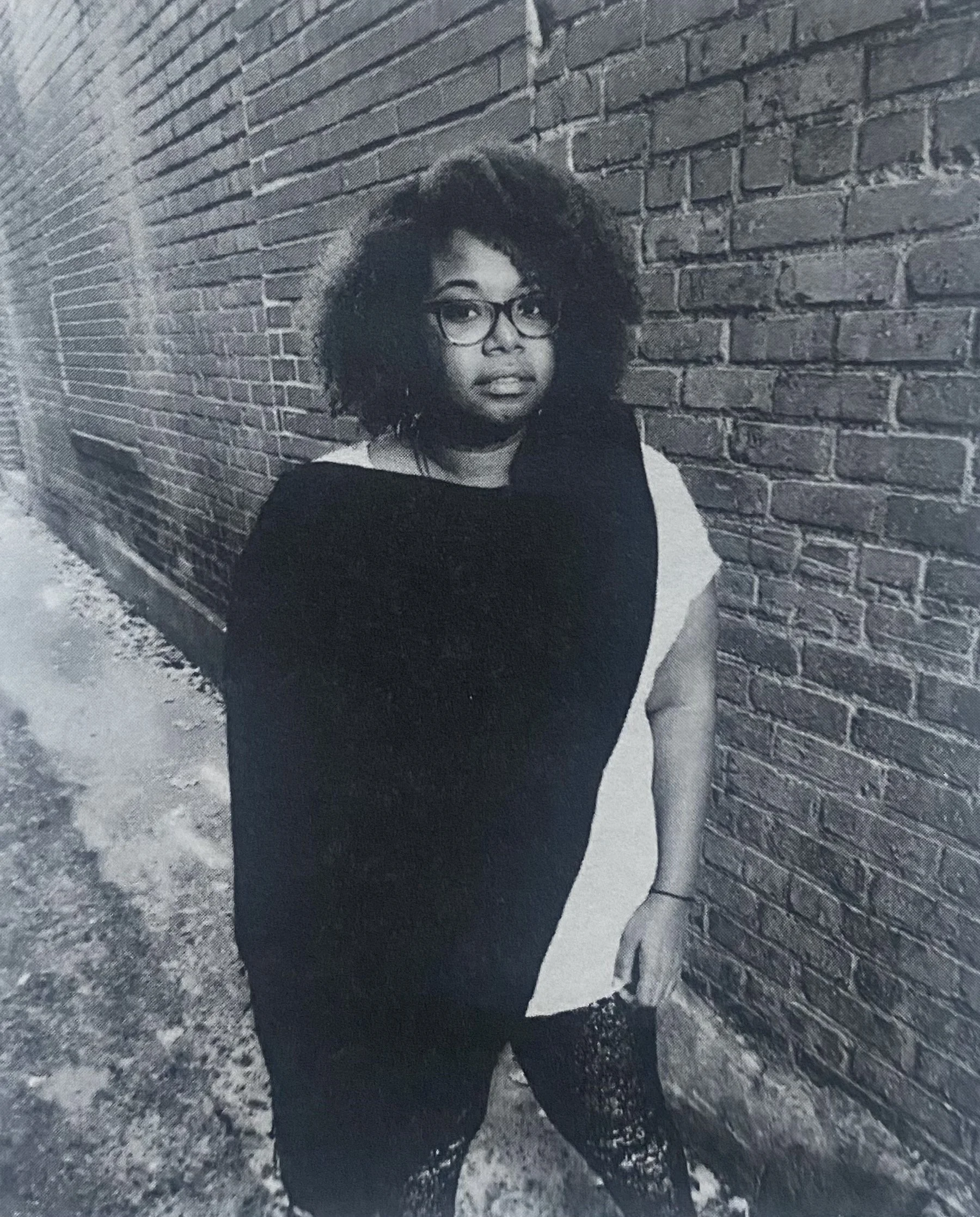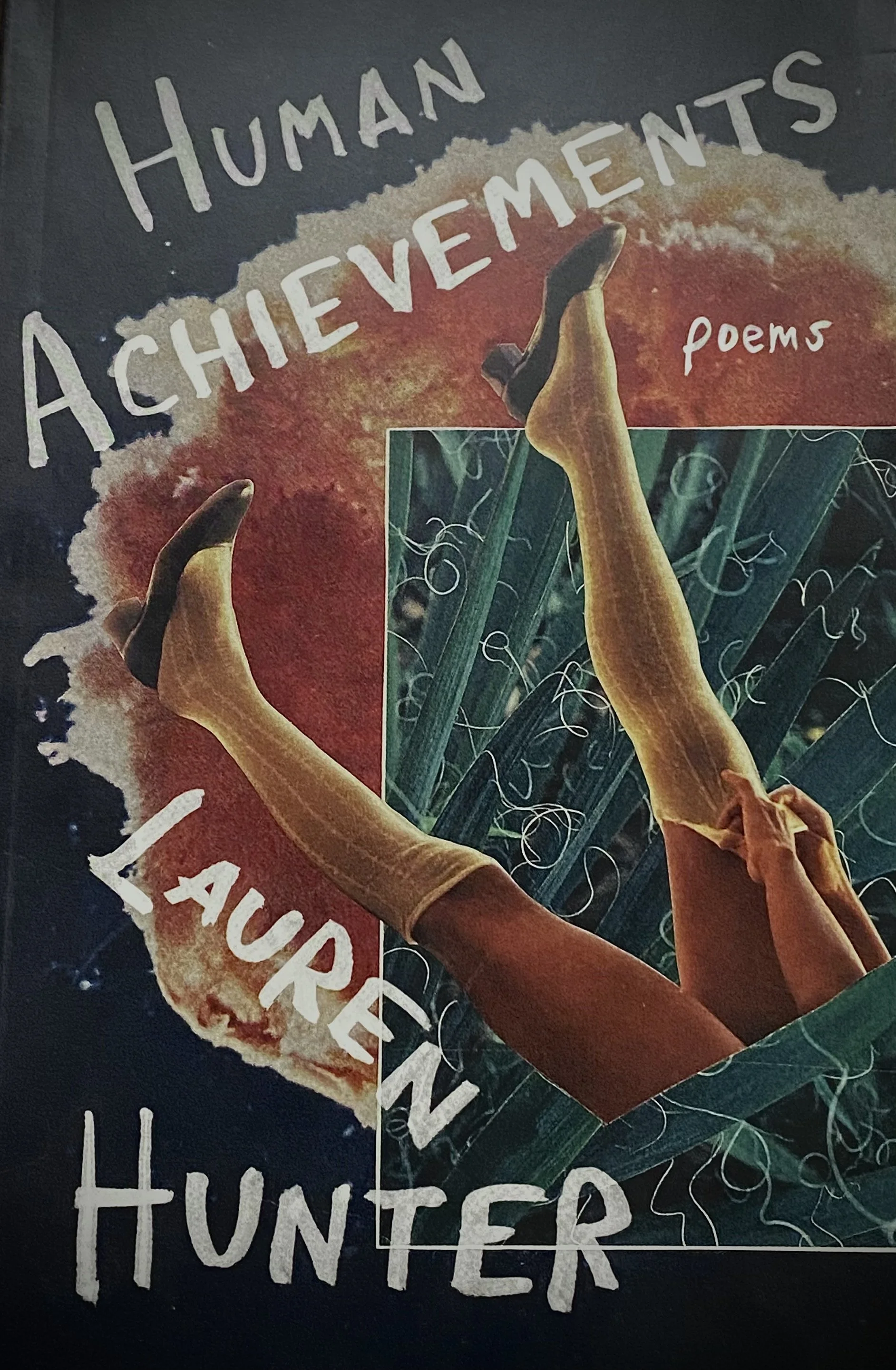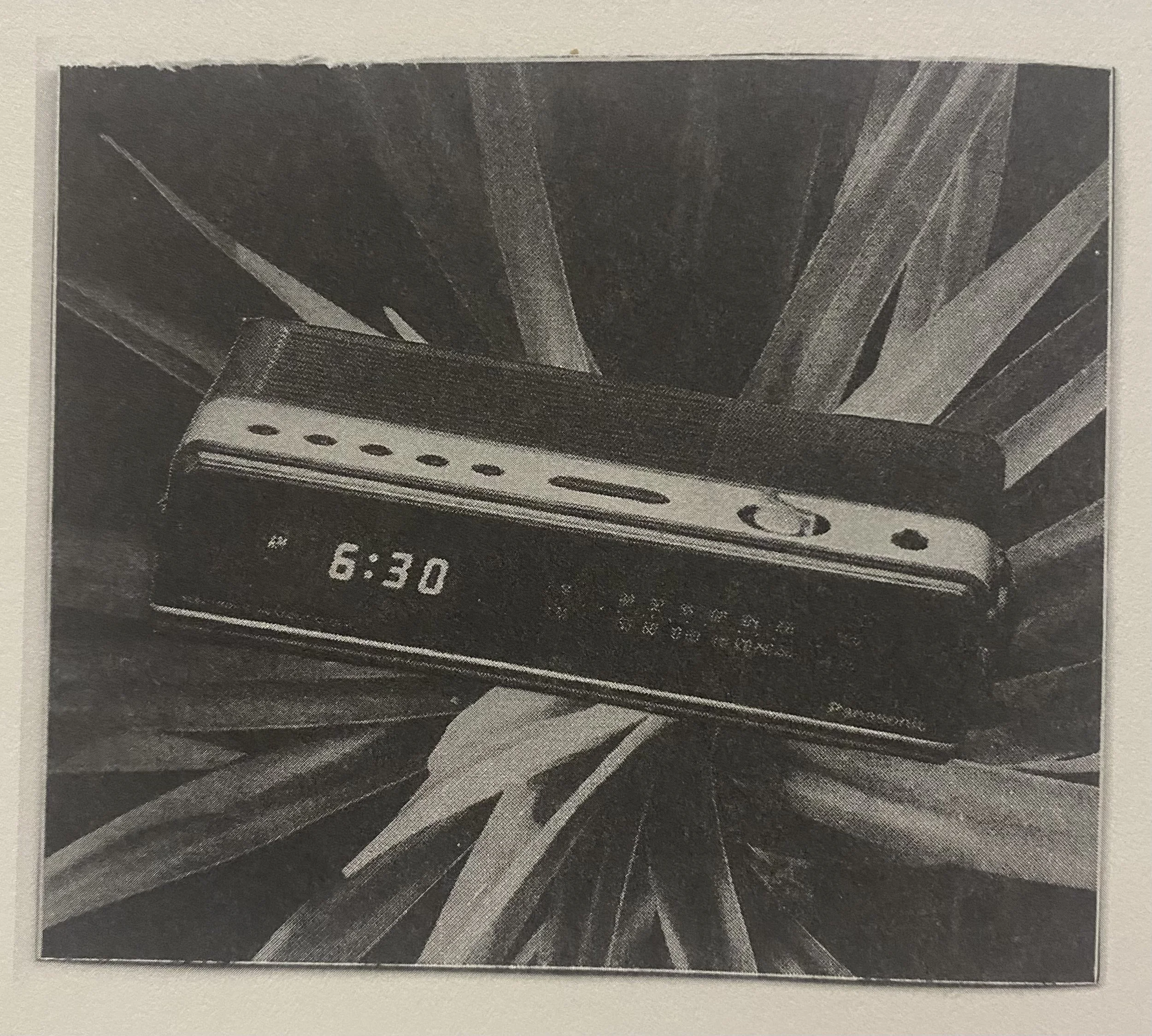THE CATCH NEWSLETTER
January 2024
Our theme for this month is the phoenix, reflecting new beginnings & resurrection. Below is an interview with poet Lauren Hunter, discussing how to rise from discouragement, what it means to be a writer, and more.
Talon Update
Earlier this month, we opened for submissions. We love seeing everyone’s submissions in our inbox! If you are interested in submitting, see our Submittable page for more information.
ON HUMAN ACHIEVEMENTS AND WRITING: AN INTERVIEW WITH LAUREN HUNTER
By Julia Croston
Photo from Human Achievements (2017)
From a young age, Lauren Hunter knew she wanted to be a writer and an educator. Her favorite childhood books range from The Baby-Sitters Club series to The Lion, the Witch, and the Wardrobe: “I just, like, went into Narnia and stayed there for years and years and years.” These pivotal books did not directly influence her writing style, but increased her desire to want to make stories.
Hunter first found writing inspiration from elementary school assignments, making stories out of vocabulary lists. Before second grade, she admits, “I didn't know we could make stories.”
Despite finding her path early in life, Hunter still has doubts about her career and writing. Writing, to Hunter, can be a discouraging process: “No one's calling you like, hey, we need your poems.” However, Hunter knows deep down that she needs, should, and wants to write.
“There's a part of my brain, or a place in my mind, where I know that I'm a poet,” she shares.
Cover of Human Achievements (2017)
From Human Achievements, the poem “HUMAN ACHIEVEMENT: INTERNET CRUSH” has a momentary reflection on how it feels to know what you want but have people stand in the way. The lines read: “say you’ve known your whole life exactly what you are and what you want, but they still say no.”
It has been a while since Hunter has submitted poems and has dealt with rejection, yet she recalls the tension between seeing creative potential and facing dismissal. Rejection, she feels, is unavoidable for artists submitting work in a capitalistic society.
She has never met a person who has told her not to write. Instead, she has found that people with doubting voices can be more discouraging than rejections from publishers: “It literally could be anything like one kid in the third grade, or like your mom, or like your aunt who doesn't get it, who's like a doubting voice that, like, then becomes, can become your own voice.” To overcome discouragement, Hunter holds onto how it feels to be a poet, which she describes as a miraculous thing.
The writing process differs for all writers. For Hunter, she does not feel the need to produce something every day or have a set amount of time dedicated to writing. She admits that a poem can sometimes take years to finish in order for it to feel right. In a moment of inspiration, she writes as much as possible and looks at it later to avoid worrying if the writing has meaning or seems good enough to put out into the world.
Thinking about word choice, Hunter sticks with what sounds and feels good: “When you write it by sound, mainly, it's really easy to just, like, venture into nonsense for a bit, because those words sound good together.” She enjoys writing the most when it feels good and does not feel like work. Thinking too much about meaning becomes obsessive for Hunter; it can be hindering to her writing process.
In Human Achievements, the language often feels uncertain and contradicts itself. For instance, the poem “Gorgeous” includes the line: “I am bound by nothing and anything.” Hunter views contradictions as interesting ways to show the breadth of a concept as well as to demonstrate swift change. She compares uncertainty to reaching out towards something only to grab onto nothing.
Image from Human Achievements (2017)
The title of her collection, Human Achievements, originated from Hunter thinking about the phrase “I’m only human.” She feels the phrase is used to dismiss human failure instead of embracing it, knowing that showing up and attempting achievement should still be honored.
“And it really felt to me, like, every single time that something goes wrong or that you don't live up to whatever you think, that ideal, whatever it is. You got up. You showed up. You did the thing; you tried. You know? You didn't sit on your hands and cry in the corner. Even if you did, maybe… there's something to be honored.”
Released six years ago, in 2017, Human Achievements has not aged poorly for the author, yet her life feels much different now that she’s not living in New York. Hunter finds the material more shocking upon returning to it: “I think what I'm struck with now… when I come back to it, I'm always like, wow, this is like really angry.” At the time, she felt that her writing still hid a lot of feelings behind a “poetic prowess.” Now, Hunter views the poems as more honest and vulnerable.
Outside of writing, Hunter has struggled to maintain hobbies since they feel like another task on a to-do list. However, she enjoys embroidery: “I haven't touched it in months, but it's possible. It's there.” More recently, Hunter has turned her attention towards lighting and lamps, selecting the perfect lightbulb to create an environment that combats seasonal depression.
For advice, Hunter recommends that writers try out more things to have a better idea of what they want to do. “I think the less pressure we put on ourselves, like the more open we can approach it, the better it’ll be,” she concludes.




